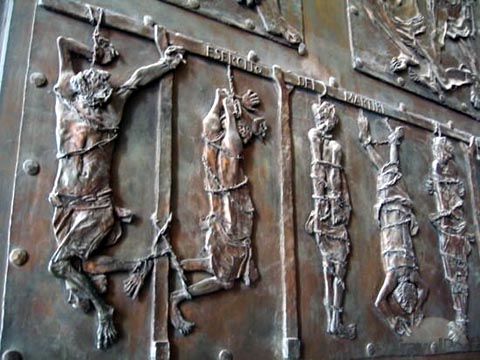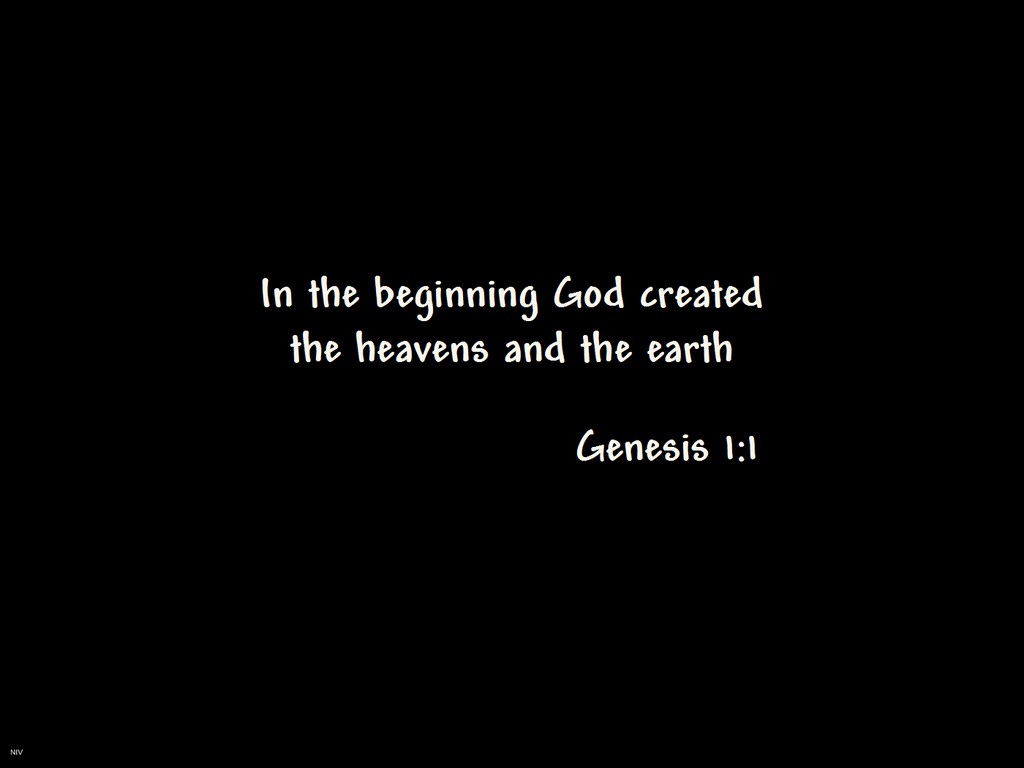“There is so much dissension among the brethren that sometimes one wonders whether he is in the communion of the saints or the confusion of tongues.”
~Vance Havner
Subtlety and Simplicity
By Vance Havner
But I fear, lest by any means, as the serpent beguiled Eve through his subtilty, so your minds should be corrupted from the simplicity that is in Christ.
II Corinthians 11:3.
Strictly speaking, what is in mind here is the simplicity of our faith in Christ rather than the simplicity of the Gospel, but we need not stop there. What stands out most is the contrast between subtlety and simplicity. Satan deals in subtilties. Our Lord deals in simplicities. There is sublimity aplenty but the sublimity is revealed to the simple, kept from the wise and prudent and revealed unto babes. We have let our minds be corrupted by Satan’s subtilties away from the Saviour’s simplicities. Beware of any teaching, any movement that is sneaking and insidious. The truth is frank and honest and aboveboard. Satan’s subtilties bear the mark of the serpent—“the snake in the grass.” Our Lord stood in the public place and invited men to Him. The Early Church came out in the open. Paul said, “This thing was not done in a corner.”
It is part of Satan’s program to make our faith and practice complicated and involved. Now and then we need a rediscovery of the simplicity that is both in and toward Christ, in Him and in our faith in Him.
But ye, brethren, are not in darkness…
But of the times and the seasons, brethren, ye have no need that I write unto you. For yourselves know perfectly that the day of the Lord so cometh as a thief in the night. For when they shall say, Peace and safety; then sudden destruction cometh upon them, as travail upon a woman with child; and they shall not escape. But ye, brethren, are not in darkness, that that day should overtake you as a thief. Ye are all the children of light, and the children of the day: we are not of the night, nor of darkness. Therefore let us not sleep, as do others; but let us watch and be sober. For they that sleep sleep in the night; and they that be drunken are drunken in the night. But let us, who are of the day, be sober, putting on the breastplate of faith and love; and for an helmet, the hope of salvation. For God hath not appointed us to wrath, but to obtain salvation by our Lord Jesus Christ, Who died for us, that, whether we wake or sleep, we should live together with him. Wherefore comfort yourselves together, and edify one another, even as also ye do.
1 Thessalonians 5:1-11 — King James Version
“God called Philip out of a spiritual awakening in Samaria and sent him off on a way “which is desert” (Acts 8:26). One must always be prepared for strange turns in the divine itinerary of our earthly sojourn. God’s timetable does not follow our little patterns. Next day may move us from a Samaria to a Sahara! But He who says “Go” goes along.”
~Vance Havner
If Any Man Will…
By Vance Havner
If any man will do his will, he shall know of the doctrine, whether it be of God, or whether I speak of myself.
John 7:17
The battle is fought in the citadel of the will. We have intelligence, emotions, and will. We may not be able to understand with the intelligence or feel with the emotions as we would like, but we can take a stand in the will and be true to God, however all else may clamor.
Do not yield to confusion. Are you a man or a mob? Too many today do not have themselves in order and under command. Many a man is not a personality, he is a panic!
Of course, our poor wills, left unaided, are but cotton strings. But when we will the will of God He begins to work in us both to will and do of his good pleasure (Philippians 2:13). We submit to His will: “Thy will be done.” Then we assert His will: “Thy will be done!” It is both passive and active. “Thy will be done” is not mere resignation to the inevitable, it is affirmation of the invincible. However little the intelligence may understand or emotion feel, we take our stand in the will yielded to His will.
And Others
By Vance Havner
And others were tortured,…
Hebrews 11:35
This “Westminster Abbey of the Bible” rises through a glorious galaxy of faith-heroes, Abel, Enoch, Noah, Abraham, and many more, until it reaches a pinnacle in a summary of those who wrought righteousness, subdued kingdoms, obtained promises, stopped the mouths of lions, quenched the violence of fire, escaped the edge of the sword, out of weakness were made strong, waxed valiant in fight, turned to flight the armies of the aliens, of women who received their dead raised to life again.
But not all fare that way. Suddenly the verse changes gears: “And others were tortured, mocked, scourged, put in bonds and imprisonment, were stoned, sawn asunder, tempted, slain with the sword, wandered, being destitute.”
Faith is not a sure road to the headlines, success, earthly victories, and deliverance from harm and danger. Some move grandly through in that first procession—and who wouldn’t like to be in that crowd? But there are others for whom things go the other way.
One thing they all had in common: “And these all, having obtained a good report through faith…” We can do that, no matter which procession we are in!
A Twofold Purpose
by Pastor Cornelius R. Stam
Have you ever noticed the wording of the majestic statement with which the Bible opens?
“In the beginning God created the heaven and the earth” (Genesis 1:1).
It does not say that God created “the universe,” but “the heaven” and “the earth.”
This is because God had a special purpose for the earth quite distinct from His purpose for the rest of the universe. This purpose concerning the earth and the nations to dwell upon it is progressively revealed in the Scriptures. We look forward to its glorious consummation when “the earth shall be full of the knowledge of the Lord, as the waters cover the sea” — when the Christ who was crucified here shall come into His right, reigning as King of kings and Lord of lords.
But God also had a very special purpose concerning heaven which He kept hidden in His own heart of love until man’s sin and rebellion had reached their climax. Then He stooped down, saved the “chief of sinners” and used him to make known the wondrous secret of His purpose to offer to sinners everywhere, salvation by grace through faith alone, reconciling them to Himself in one body by the cross and giving them a present position and a future prospect in the highest heavens.
God’s purpose concerning the earth and Christ’s reign upon it is the subject of prophecy (Luke 1:68-76), His purpose concerning heaven and our exaltation there with Christ is the subject of “the mystery” (Ephesians 2:4-10; 3:1-4). Into these two great subjects the Scriptures are basically divided.
Appreciate What You Have
January 26, 2015
When the king of Egypt was told that the people had fled, Pharaoh and his officials changed their minds about them and said, “What have we done? We have let the Israelites go and have lost their services!” — Exodus 14:5
The Torah portion for this week is Beshalach, which means “when he sent them away,” from Exodus 13:17–17:16, and the Haftorah is from Judges 4:4–5:31.
You may have heard the quote: “What if you woke up today with only the things that you thanked God for yesterday?” It’s a poignant message about gratitude. But consider this as a follow-up question to ponder: “What if you woke up today with none of the things that you complained about yesterday?” Think about that for a moment.
Did you complain about your car? Your house? Someone special in your life?
Let me tell you something about the Exodus story that we are continuing to read this week. On one level, it’s about the liberation of speech. That’s right – it’s not just about the redemption of the Israelites; the subtext is about the redemption of our speech.
Two of the main symbols of the Exodus story are Pharaoh and Egypt. In Hebrew, those two words take on whole new meanings. Pharaoh, in Hebrew paroh, can be split to form the Hebrew words peh ra, meaning “bad mouth.” Pharaoh represents our own bad speech – the kind of talk that brings us down and others, too. Bad speech is when we complain, or tell ourselves that we are not good enough or not loved by God. Egypt, Mitzrayim in Hebrew, is related to the word maitzarim, which means “narrow” or “constricted place.” Egypt symbolizes our own psychological constricted states, such as when we are depressed and hopeless, or when we have a short-sighted view of the future, or when we feel that all is lost.
These states of constriction and bad speech are what God rescues us from in our lives, even today.
Now, let’s pay attention to the moment of redemption and how Pharaoh and Egypt react. “When the king of Egypt was told that the people had fled, Pharaoh and his officials changed their minds about them and said, ‘What have we done? We have let the Israelites go and have lost their services!’” After kicking the Israelites out of Egypt, suddenly Pharaoh became acutely aware of the value of what he once had.
Here’s the lesson: When we are in a “constricted state” (Egypt) with a “bad mouth” (Pharaoh), we don’t appreciate what we have until it’s gone.
We take so many things in our lives for granted – from the people in our lives to the modern-day amenities like clean water, gas, heat, and fresh food. Even worse, we complain about the very same blessings that we once prayed for! It is truly liberating and redemptive to get out of Egypt and leave the bad-mouthing behind. We need to appreciate all that we have before it becomes what we once had.
Today, if you get the urge to complain about something, pause and ask yourself this: How would I feel if tomorrow this was gone?
With prayers for shalom, peace,
Rabbi Yechiel Eckstein
Emotion
By A.W. Tozer
Another quality of the in-dwelling Fire is emotion. This must be understood in the light of what has been said before about the divine inscrutability. What God is in His unique essence cannot be discovered by the mind nor uttered by the lips, but those qualities in God that may be termed rational, and so received by the intellect, have been freely set forth in the sacred Scriptures. They do not tell us what God is, but they do tell us what God is like, and the sum of them constitute a mental picture of the Divine Being seen as it were afar off and through a glass darkly.
Now the Bible teaches that there is something in God that is like emotion. He experiences something that is like our love, something that is like our grief, that is like our joy. And we need not fear to go along with this conception of what God is like. Faith would easily draw the inference that since we were made in His image He would have qualities like our own. But such an inference, while satisfying to the mind, is not the ground of our belief. God has said certain things about Himself, and these furnish all the grounds we require. “The Lord thy God in the midst of thee is mighty; he will save, he will rejoice over thee with joy; he will rest in his love, he will joy over thee with singing” (Zephaniah 3:17). This is but one verse among thousands that serve to form our rational picture of what God is like, and they tell us plainly that God feels something like our love, like our joy, and what He feels makes Him act very much as we would in a similar situation; He rejoices over His loved ones with joy and singing.
Verse
“The Lord your God is with you, / he is mighty to save. / He will take great delight in you, / he will quiet you with his love, / he will rejoice over you with singing.” Zephaniah 3:17
Thought
The Bible teaches that there is something in God that is like emotion. He experiences something that is like our love, something that is like our grief, that is like our joy.
Prayer
Thank You, Kind Father, for Your love and that You rejoice over us with joy and with singing!
A Tale Of Three Cities
by Pastor Cornelius R. Stam
In Thessalonica the Apostle Paul reasoned out of the Scriptures for three Sabbath days with men who were unwilling to be convinced (Acts 17:1-9). The bigotry of these Thessalonians not only kept them in spiritual darkness, but it moved them to bitter opposition to the truth, so that they persecuted Paul and Silas and even followed them to Berea, stirring people up against them.
Bigotry has the same effect today. Let us never close our minds so as to keep error out, for in doing so we will only shut new light out and close old errors in. Moreover, it is but a small step from shutting out new light from God’s Word to engaging in bitter opposition against it.
The Athenians went to the other extreme. They lost interest in what was old and clamored only to hear new things (Acts 17:21). Yet when Paul came to them with the good news of the gospel of grace, some “mocked” while others, more polite, said: “We will hear thee again of this matter,” and turned away (Verse 32).
The Athenian spirit too is still rife today. Many are constantly giving up the old and looking for something new, sure that the latest fashions, the latest statistics and the latest advice must be best. This is why the New Evangelicalism has gained so many followers in our day.
Significantly, the story of the noble Bereans falls between those of the Thessalonians and the Athenians in our Bibles. These Bereans possessed true spiritual greatness. They gave man’s word respectful consideration, whether old or new, but then subjected it to careful examination in the light of the Word of God. They received Paul’s word, we read, with open minds, and then “searched the Scriptures daily, whether those things were so” (Verse 11). For this God called them “noble.” They were the spiritual aristocracy of their day.
May God help us to be neither “Thessalonians” nor “Athenians,” but true Bereans. If we follow men we drift on a sea of human speculation, for men disagree on the most vital issues. Only as we stand on the infallible, unchangeable Word of God can we be sure that we have the truth.
The Secret Ingredient
By Vance Havner
The secret of the Lord is with them that fear him.
Psalm 25:14
Everything has that mysterious “something” nowadays, whether washing powder or gasoline or vitamin pills or shaving cream or tooth paste – everything has that new added element that no other brand has. This magic X has a wonderful unpronounceable name not yet in any dictionary. We smile, but thousands of gullible mortals will buy truckloads of the hokum and find it no better than something else they fell for months ago.
But there is a secret ingredient that makes one brand of people different from all others. It is not some new religious fad or ism, although these too shout their magic formulas today. There are among us here and there those who have a deep inner peace and joy, “who ply their daily task with busier feet because their secret souls a holier strain repeat.”
No double-jointed theological jawbreaker is needed to name that secret ingredient. It is simply the grace of God, peace with God, and the peace of God in the trustful and obedient heart. “His secret is with the righteous” (Proverbs 3:32).

















Leave a Reply, please --- thank you.